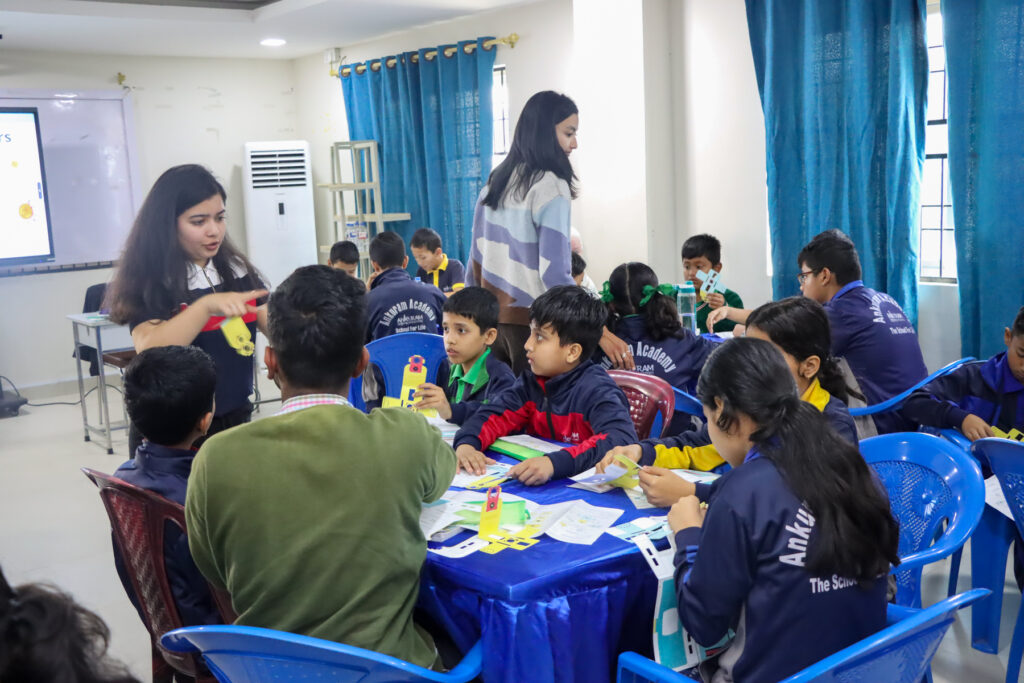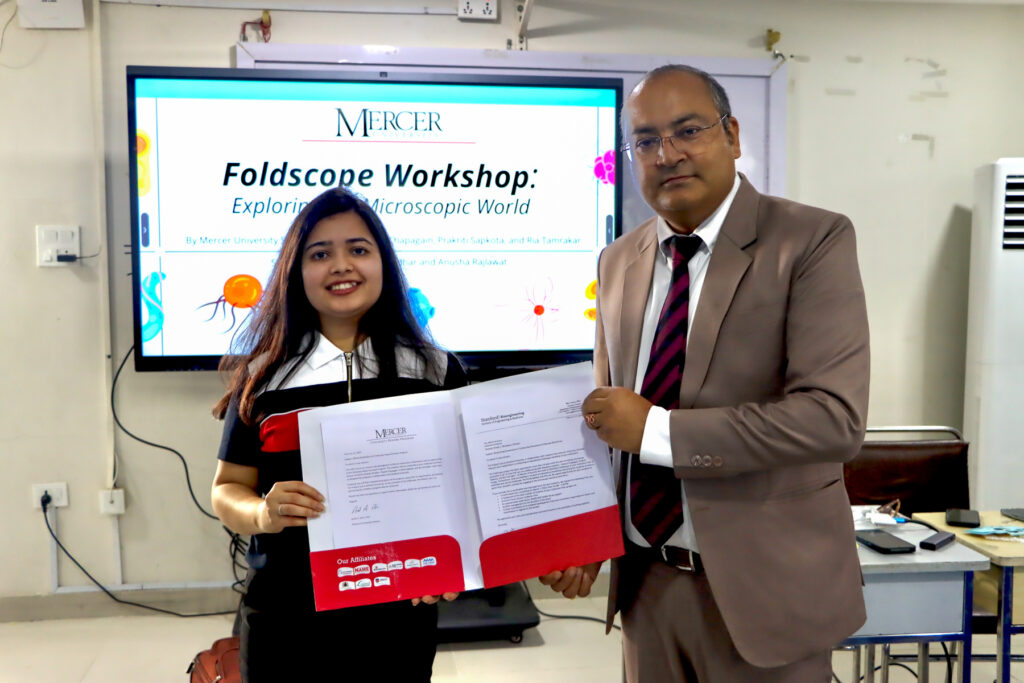
Growing up in Nepal, Mercer University juniors Rajwol Chapagain and Prakriti Sapkota did not have access to microscopes in school. So, they went home over spring break this year and gave that opportunity to hundreds of students.
“We never got to use a microscope or see what something under a microscope looks like,” said Sapkota, a biomedical engineering major. “We thought it would be really nice if we could pass on the experience to high school students who learn about science and all these microscopic organisms but have no idea how they actually look or how it actually feels to have a microscope.”
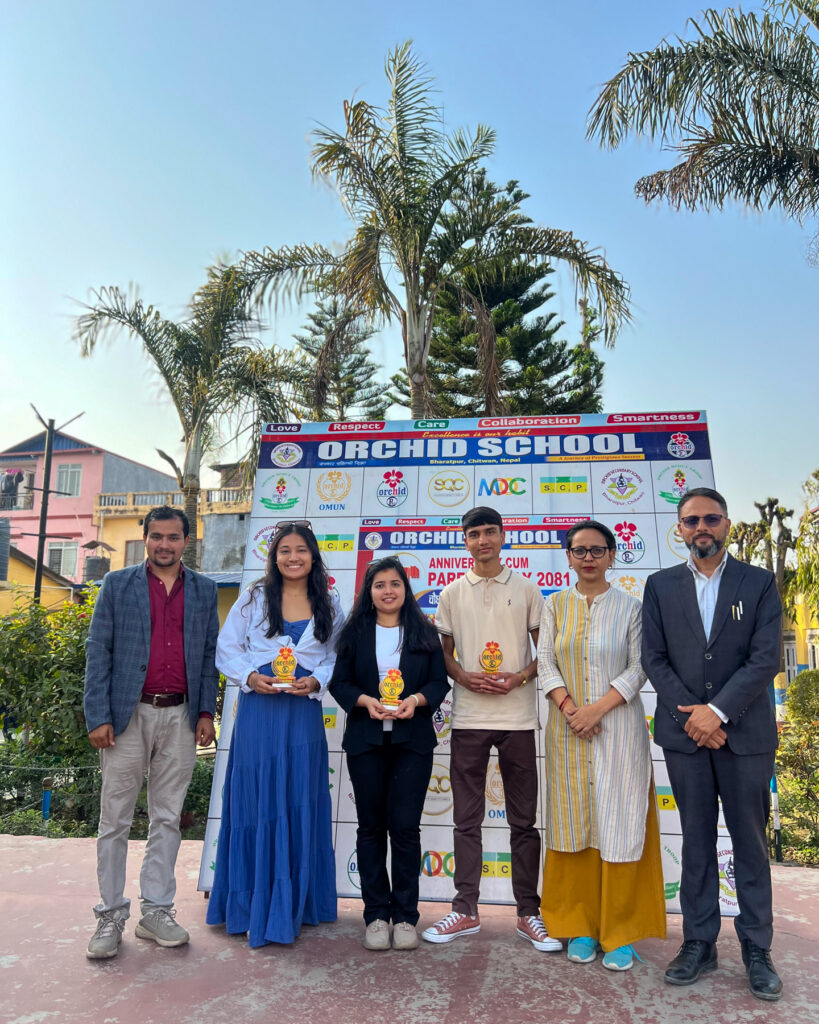
Sapkota and Chapagain, along with freshman Ria Tamrakar, a global health studies and Spanish double-major, taught sixth through 10th grade students across three schools to use a low-cost, innovative microscope called Foldscope. It’s made of a lens, magnets and paper, providing 140 times magnification.
“We taught them how to prepare samples, and they were just so creative with preparing samples. They thought about looking at pollen from flowers,” Sapkota said. “We were able to see how just giving them the resources would enable them to be more curious toward science and the microscopic world.”
Dr. Manu Prakash, associate professor of bioengineering at Stanford University, and Jim Cybulski, a Ph.D. student in Dr. Prakash’s laboratory, invented Foldscope to make microscopy more accessible and affordable. One Foldscope, available online at foldscope.com, is $2.75.
Chapagain, a computer science and communication studies double-major, heard Dr. Prakash talk about the microscope at a conference last summer and was impressed with Foldscope’s mission.
“I thought that when I go back to Nepal, I should take one so my sister can have one. She’s 15. I thought this would be a great tool to spark her scientific curiosity,” Chapagain said. “But then, I thought about it again, and I was like, ‘What if all the hundred kids in my school had it? That would be really cool.’”
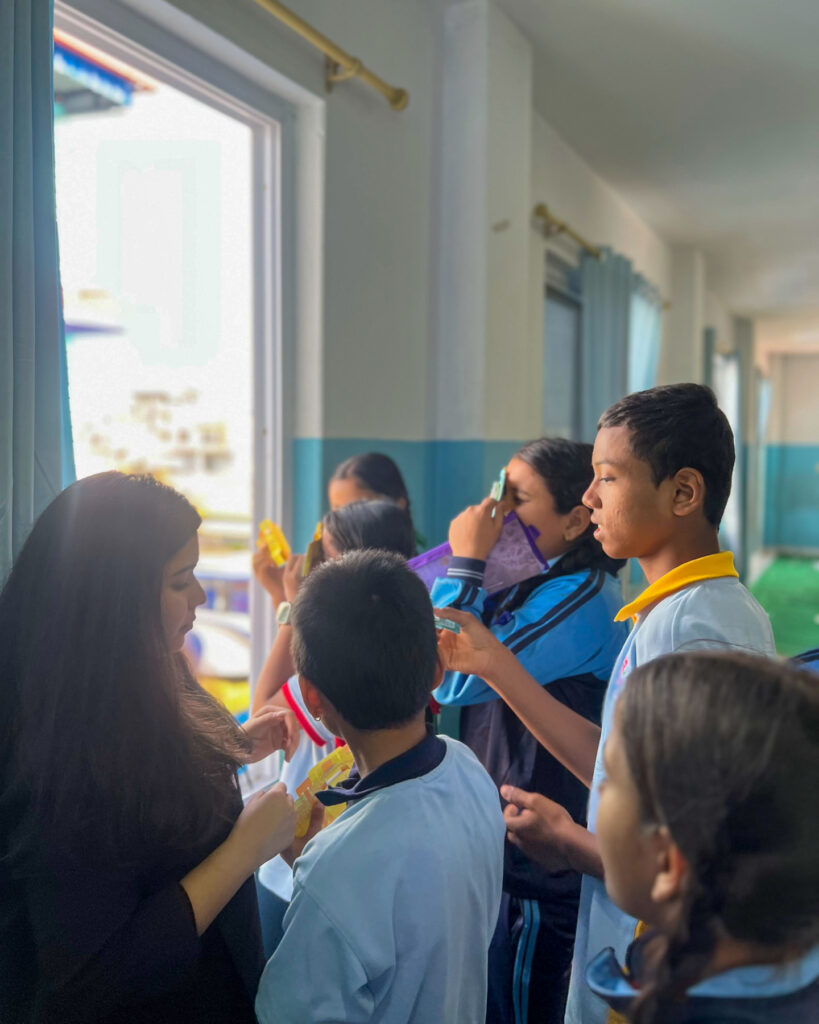
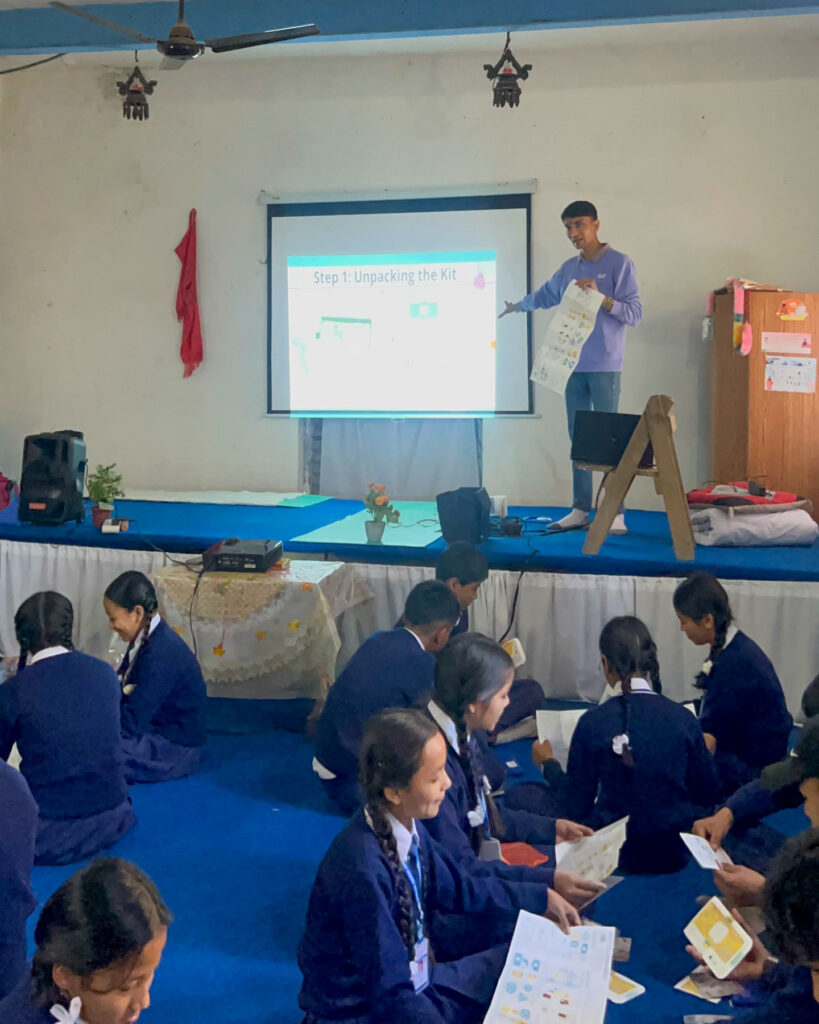
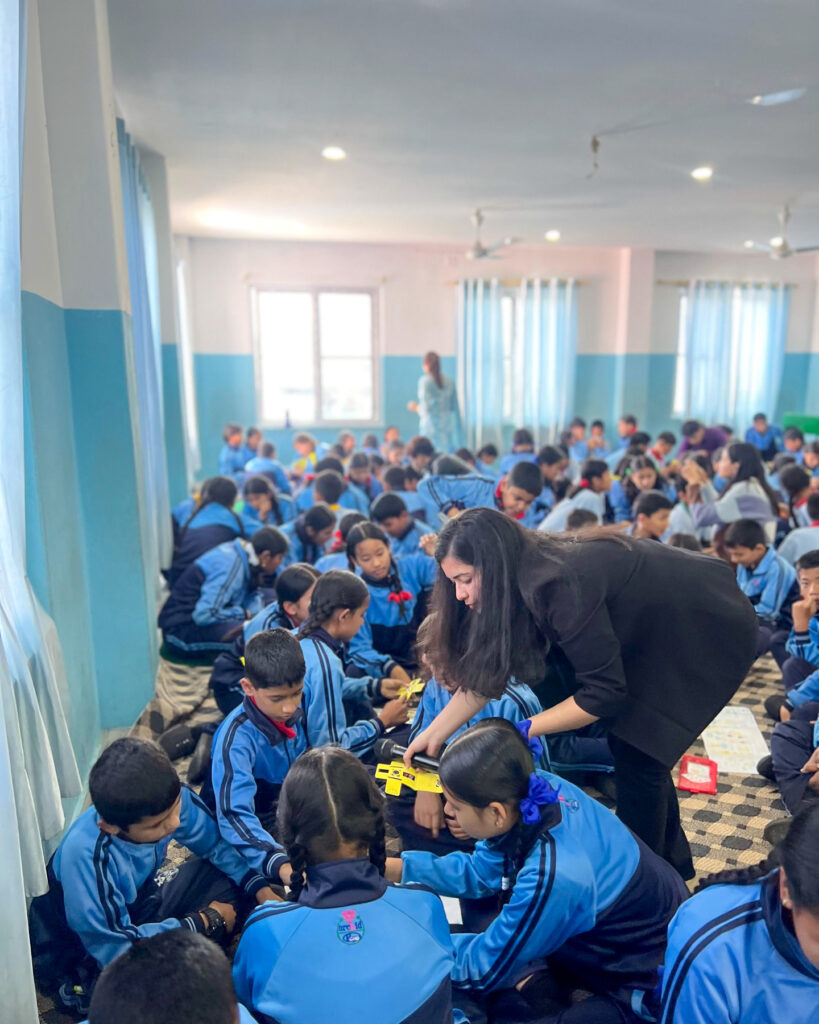
He stuck around after the session and shared his idea with Dr. Prakash, who gave the Mercer students over 100 Foldscopes to take to Nepal. The students, all of whom are Mercer Honors students and Stamps Scholars, used their Stamps scholarship enrichment funds to purchase an additional 100 Foldscopes.
“My philosophy in scaling Foldscope to reach communities around the world is to find people who passionately believe that science belongs to everyone,” Dr. Prakash said. “Rajwol and the students from Mercer understood this — and it was obvious they understand the role of science at grassroots. My primary goal is to enable young people to bring science to places where it would not reach, whether be it a bus stop in Baltimore or a slum in Mumbai.”
Dr. Rafikh Shaikh, a faculty member at Tata Institute of Social Sciences in Mumbai and Foldscope fellow, mentored the Mercer students to run the Foldscope workshops.
The students visited Chapagain’s school, Tribhuwan Adarsha Awasiya Secondary School in Pharping, Kathmandu; Sapkota’s school, Orchid School in Bharatpur, Chitwan; and Ankuram Academy in Bharatpur, Chitwan.
This was the first time Sapkota and Chapagain had returned home after coming to the University. Tamrakar, an American whose family is from Nepal, had visited but never experienced schools in the country.
“I got to go back and kind of see how high school and secondary school was in Nepal. I got to utilize some of my language skills there as well,” Tamrakar said. “It helped me a lot with just connecting two worlds, connecting the U.S. and Nepal, and really looking at the education differences between the two.”
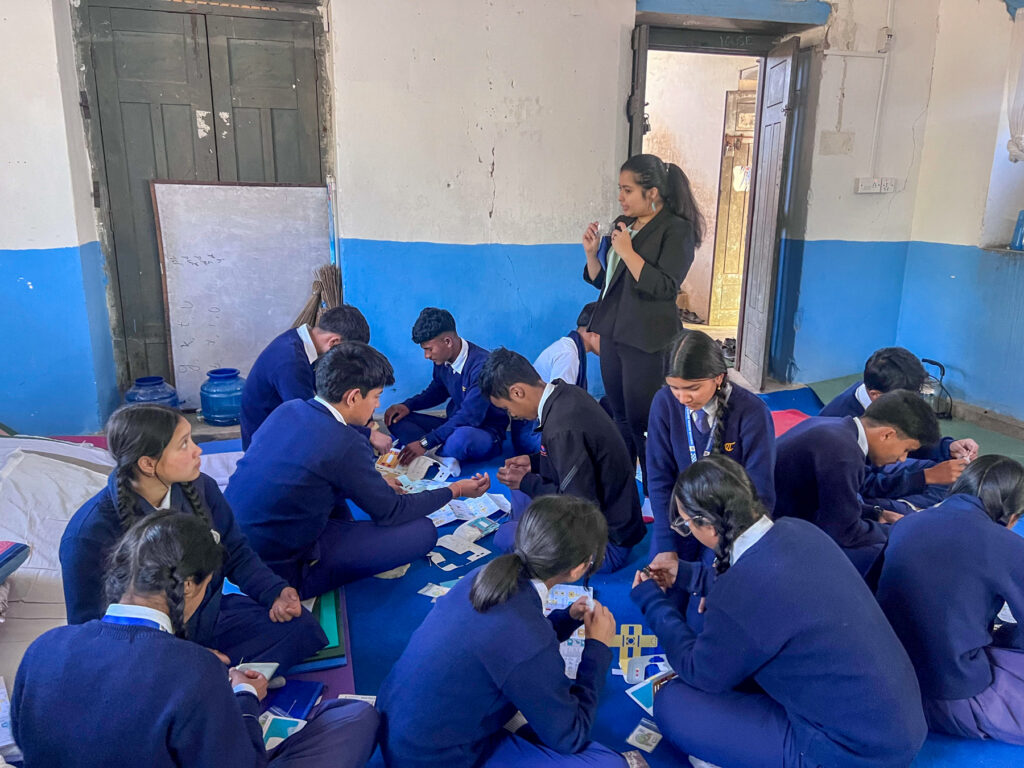
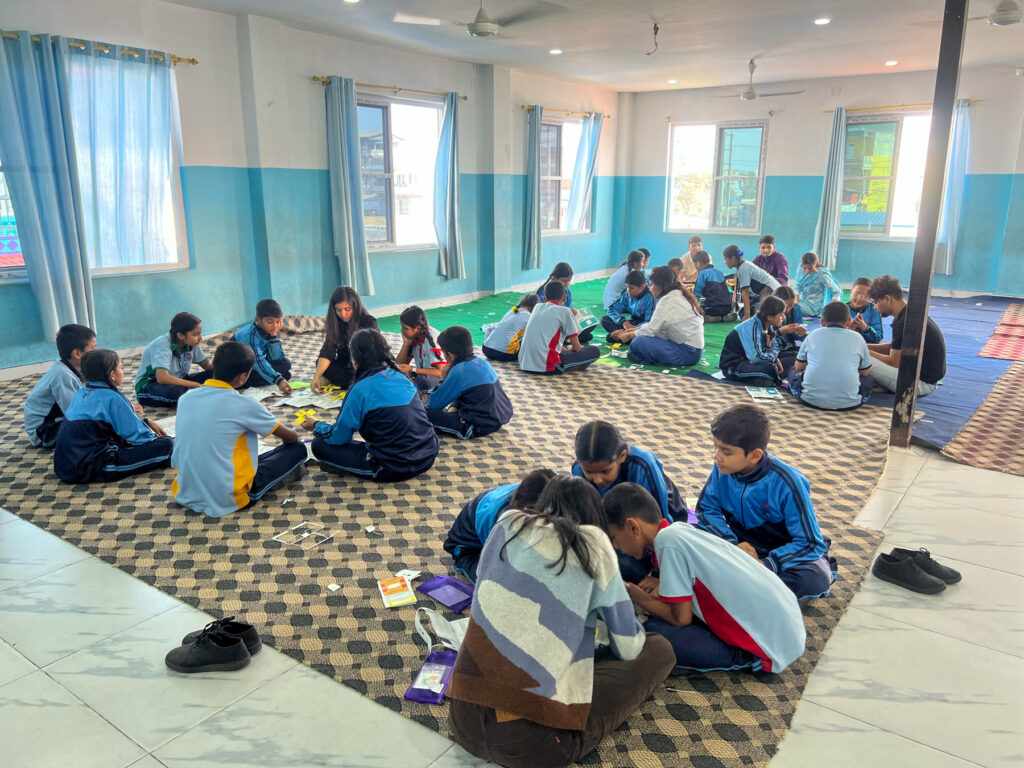
Schools in Nepal often focus on memorization rather than hands-on learning experiences, Chapagain said.
“There’s rarely ever that connection with the real world,” he said. “And I face that every day when I tutor my sister. Whenever I have to teach her about animal cells and plant cells, I have to tell her, ‘Hey, that picture you see right there, that’s what you’re made out of,’ because they don’t have microscopes. There’s not that connection.”
Students in Nepal were excited to learn they could keep the microscopes, and teachers gave positive feedback, he said. The Mercer students hope to repeat the project and expand it in the future.
“I am proud of what the Mercer students did. I hope many other students at Mercer reading this see it as an opportunity to take this tool to communities they deeply care about,” Dr. Prakash said. “Science is for sharing — and it grows on everyone who is involved. Teachers are learners too, and the students learned a lot, even far beyond science.
“I envision a world where we take curiosity as a fundamental right and enable everyone to explore this wonderful world we have been gifted and pass that love to the younger generation. That is the only way to build a sustainable society that can live in harmony with nature. We can only care for something that we understand. I hope the work of these young students inspires many more to take these ideas forward.”
